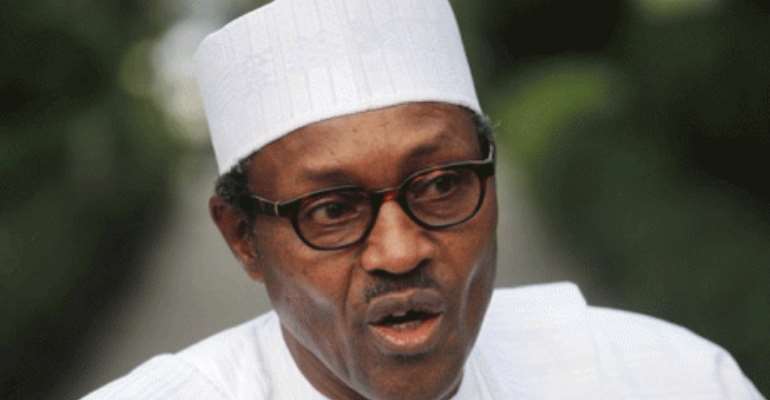The Trial–And–Error Period

The history of Nigeria, 55 years as an independent state, has witnessed several ugly events in her leadership process and administration. In general, eleven regimes have passed through the corridors of power; a whole lot of eight being military and only three were civilians. Records of coups and counter coups also graced the nation blessed with rich human and natural resources.
With the Independence, Nigeria stepped into the first Republic. This lasted from 1960 to January 15, 1966 with Abubakar Tafawa Balewa as the Federal Prime Minister and Dr. Nnamdi Azikiwe as the President. At this time, the country was still divided into the three regions, which the colonial masters decreed. Balewa was too weak to manage the country and so his rule was fraught with problems and managerial inadequacies. As it were, the candidates from NPC and NCNC coalition dominated the Federal Government. However, the NPC focused on the problems of the North and favoured Islamism. The NCNC were nationalists, Christians and populists.
This brought in the initial friction coupled with the opposition of the AG. Internal squabbles between the prime minister and the President worsened until the army came in to restore order, on January 15, 1966. Thus, Aguiyi Ironsi headed the first military government, from May – July 1966. Ironsi and his advisors favored a unitary form of government, which they thought would eliminate the problems of regionalism.
The Decree Number 34 of 1966 issued by Ironsi annulled the Federal system of government and substituted it with a unitary system. The northerners feared that given their poor development pace compared with the South, a unitary system will give the southerners an upper hand. They launched a counter coup, which saw Ironsi and many others dead. Then Gowon came to power.
The Gowon regime came under fire owing to the widespread scandal and corruption at every level of the national life. In 1975, there were signs that Gowon was not prepared to fulfill his promise of transition to Civilian rule. A bloodless coup was conducted and he was deposed while attending the OAU (now AU) summit in Kampala, Uganda. General Murtala Mohammed, 1975-1976, headed the third military government. The regime took actions on issues Gowon was too weak to act upon and redressed his (Gowon’s) excesses.
Significantly, he introduced the “low profile” policy, a radical departure from the ostentation of the Gowon era. It was the decision of the General to do away with the elaborate security system of the Gowon era that cost him his life as he was killed on Feb. 13, 1976. The appearance of Obasanjo as the fourth military head of state was quite eventful as he armed himself with the courage to restore the life of Nigerians. He championed the growth of agriculture, expansion of education, growth in petroleum production and embarked on numerous economic and constitutional reform programs. As Obasanjo retired in 1979, Shehu Shagari was elected under the new democratic constitution.
This marked the second Republic of Nigeria. The regime adopted the American- style executive presidential system as against the parliamentary system of the first Republic. But the government could not last because it squandered and stole the riches of the Nigerian people until the soldiers, who looted and destroyed what was left, overthrew it four years later. Muhammadu Buhari took over power in 1983 and held it till 1985.
Faced with the problem of how to do away with the foreign debt, the regime introduced austerity measures. Gradually, it became increasingly authoritarian and proved unable to tackle the Nigerian severe economic problems. It was peacefully overthrown in 1985 and Babangida became the sixth military head of state. This was the most agonizing regime in the history of Nigeria and corruption was enthroned in the polity. Babangida appeared too terrible for Nigerians but the annulment of the June 12, 1993 general elections, which became the aborted third Republic of Nigeria, saw him out of office.
Babangida was equally replaced by another fierce monster as head of state, Gen. Sani Abacha. On Nov. 17, 1993, Abacha seized power from Ernest Shonekan and installed himself as the new leader. Abacha dismissed all his enemies from office, military as well as civilians, so as to ensure that his government was secured. He never thought of handing over power, rather he was bent on self-succession. But the election could not be concluded and the dictator died suddenly on June 8, 1998. General Abdulsalami Abubakar was appointed as the head of state.
Gen. Abubakar successfully handed over power to civilian administrators in May 1999. The third republic saw Gen. Obasanjo as the President. He, who was the fourth military Head of state, now came back as a civilian president. On May 29, 1999, the oath of office was administered to president Obasanjo. His second term in office expire in 2007. The coming of ill and unfit president Umar Musa Yar'adua makes things very difficult and unbearable for us.
The era of Goodluck Ebele Jonathan was tagged as the era of insurgence, corruption and misappropriation of public funds as well as huge abuse of office. Although he made a great history and become the "DEMOCRATIC HERO ". Such has been the Nigerian trial- and- error; change of policy and instability of administration. The dominance of the nation’s leadership by the military is the greatest obstacle to the survival and sanity of the nation.
In the same way, the experiences of the civil wars from 1967-1970, together with the annulment of the June 12, 1993 elections, dealt the nation the heaviest blows. Even with the installation of the long-hoped- for civilian rule, it is not all over. There is no distinct segment of the administration that is functionally sound and the polity is fraught with problems. Usman Mohammed. Department of Mass Communication, IBB University, Lapai-Niger State. 07060815443.
